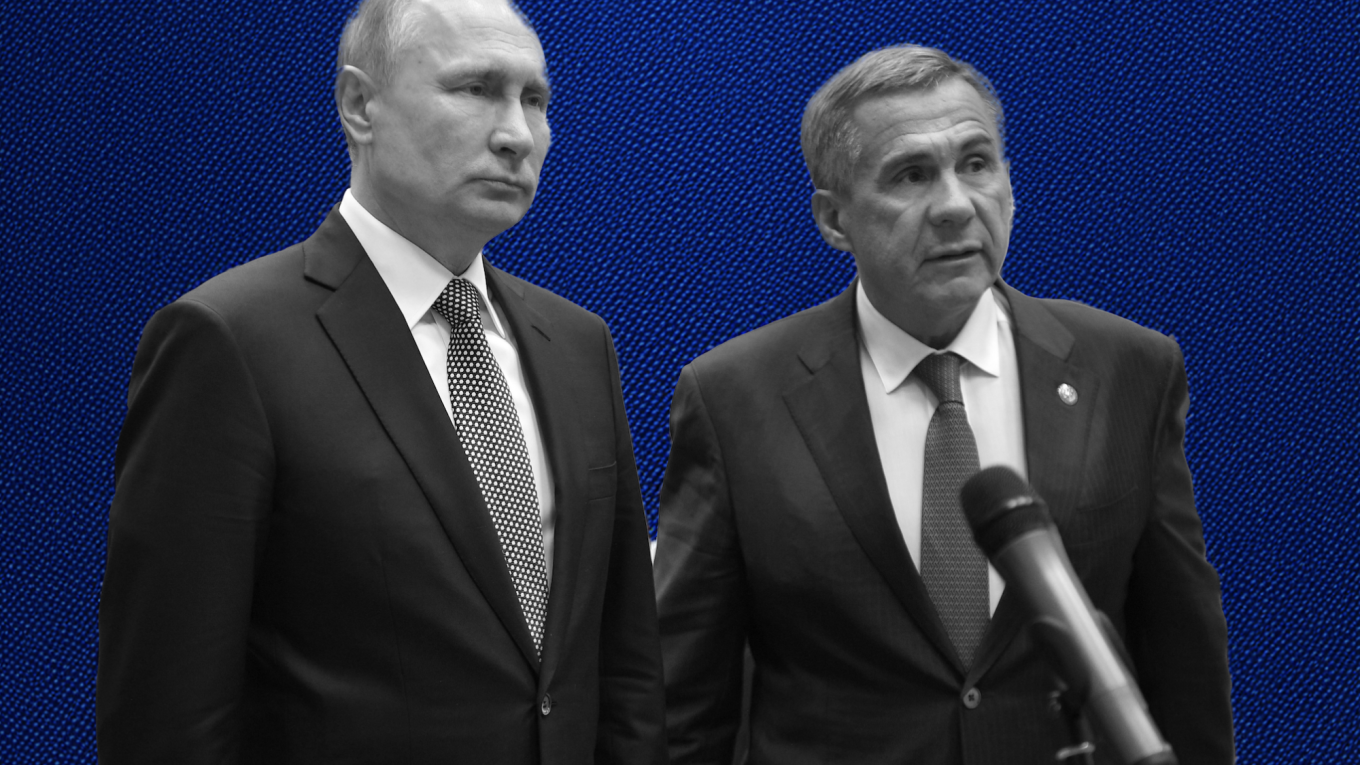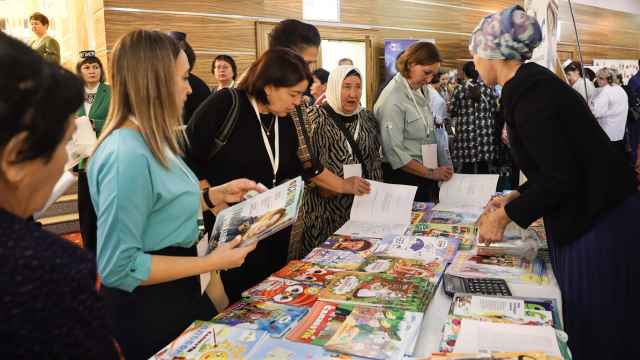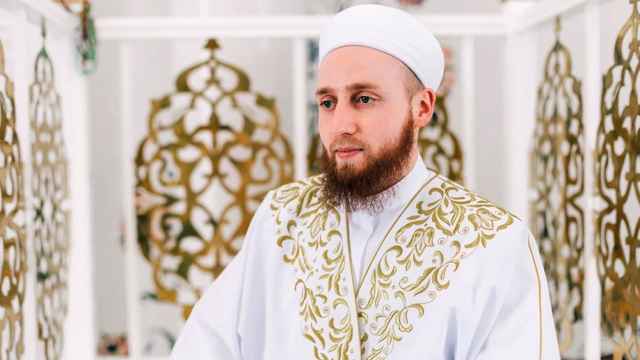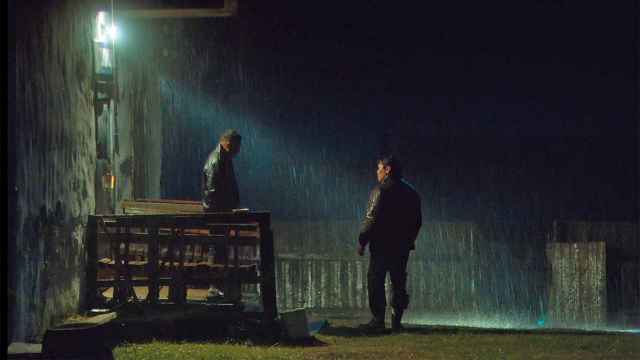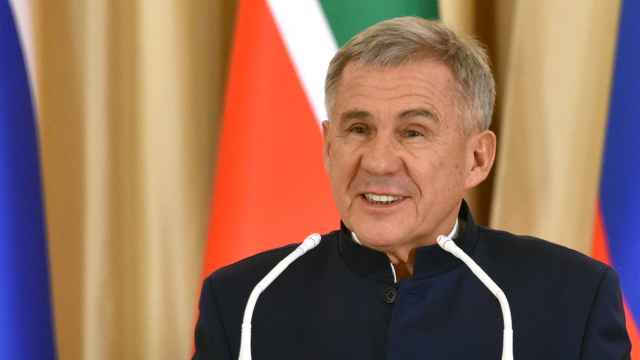Hello and welcome to Regions Calling, a new weekly newsletter from The Moscow Times helping you make sense of events and understand the key trends shaping life and politics beyond the Russian capital.
In this week’s edition, MT’s Indigenous special correspondent Leyla Latypova explores how the republic of Tatarstan, which once strove to break away from Russia, has become indispensable to realizing the Kremlin’s grand foreign policy ambitions since the invasion of Ukraine.
Subscribe here so you never miss an issue.
Monday’s highly anticipated two-hour phone call between Vladimir Putin and Donald Trump confirmed most observers’ suspicions that the current U.S. administration is unlikely to bring a just peace to Ukraine by toughening its stance towards the Kremlin.
Instead, the exchange that sounded more like a warm chat between two old friends is more likely to pave the way for more bilateral contacts between Washington and Moscow in the near future.
This includes the series of ice hockey games between U.S. and Russian players that Putin floated in a call with Trump in March and which the latter reportedly “supported.”
The first game between national teams comprised of players from the NHL and Russia’s Kontinental Hockey League (KHL) could take place in Russia as soon as June 24, according to Business Online, the republic of Tatarstan’s flagship business daily.
Business Online also cited insider reports suggesting that Tatarstan’s capital Kazan is being considered alongside St. Petersburg and Moscow as a potential host of the historic match.
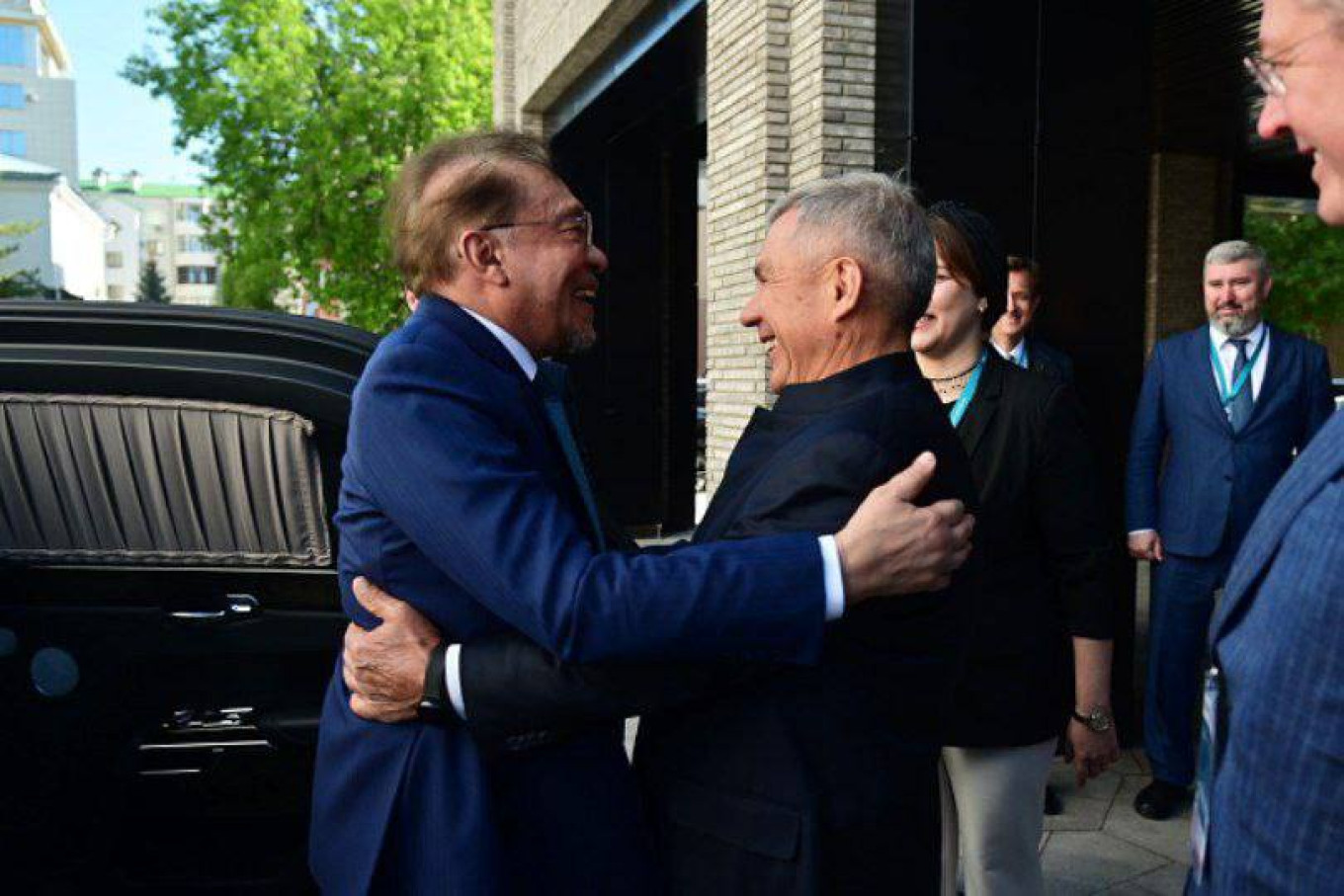
From an outsider’s perspective, Kazan, a city of 1.2 million people, may seem like a puzzling choice for a match meant to break the ice — literally — between two global superpowers. Tatarstan’s flagship Tatneft Arena has a seating capacity of just over 8,000 people, compared to 20,000 seats in St. Petersburg’s SKA Arena, which Russian officials previously singled out as a likely venue.
“But one thing that Kazan [does have an advantage in] is its skill and experience in hosting major international events. And the KHL-NHL meeting promises to be one,” wrote Business Online.
This assessment might seem bizarre and far-fetched to some, but not to those who have been keeping up with Tatar politics.
Over the past three years, the Muslim-majority republic located on the banks of the Volga River has emerged as the principal driver of Russia’s pivot to the Global South — a crucial foreign policy priority for Putin amid the Kremlin’s isolation from the West.
The accounts of Tatarstan’s head Rustam Minnikhanov and his press secretary boast pictures and videos of meetings with high-ranking officials and heads of state from Central and Southeast Asia, the Middle East and Africa.
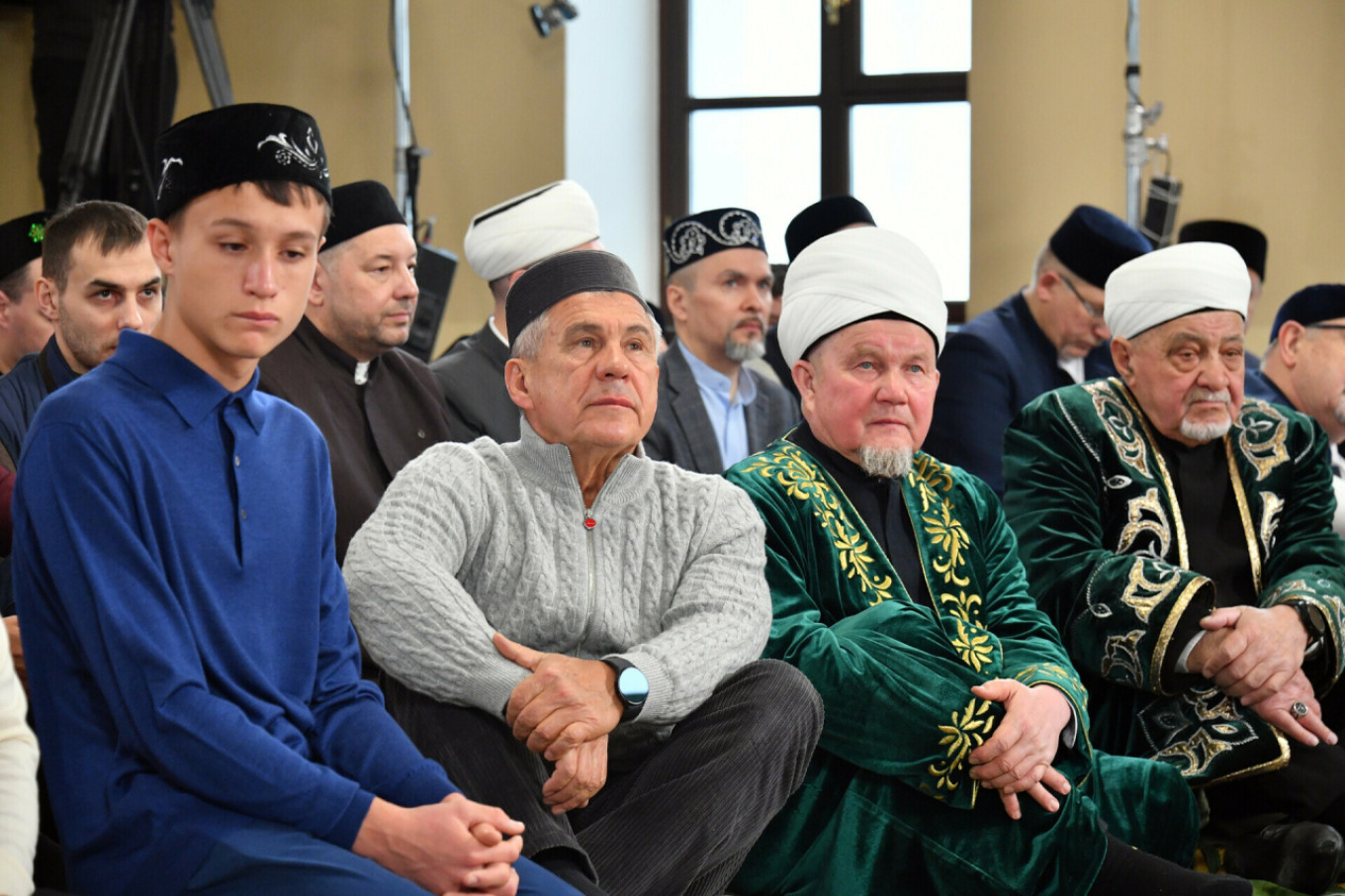
Most of this content gives off an impression of a friendly, easy-going, even brotherly relationship between Minnikhanov and state leaders — like this photo capturing a warm embrace with the Malaysian Prime Minister Anwar Ibrahim or a video of Minnikhanov showing Turkmenistan’s de facto leader Gurbanguly Berdimuhamedow around the newly opened Kamal Theater.
Though this rubberstamped content only shows what Minnikhanov’s team wants us to see, Minnikhanov, a Turkic Muslim who still seemingly speaks his native Tatar better than Russian, has far more grounds for establishing personal connections with leaders of Muslim-majority countries than Putin.
Let’s take the relationship with Kazakhstan’s President Kassym-Jomart Tokayev: while Putin (infamously) struggles to pronounce his name in a blatant show of disregard for his fellow leader, Minnikhanov’s native Tatar is mutually intelligible with Kazakh.
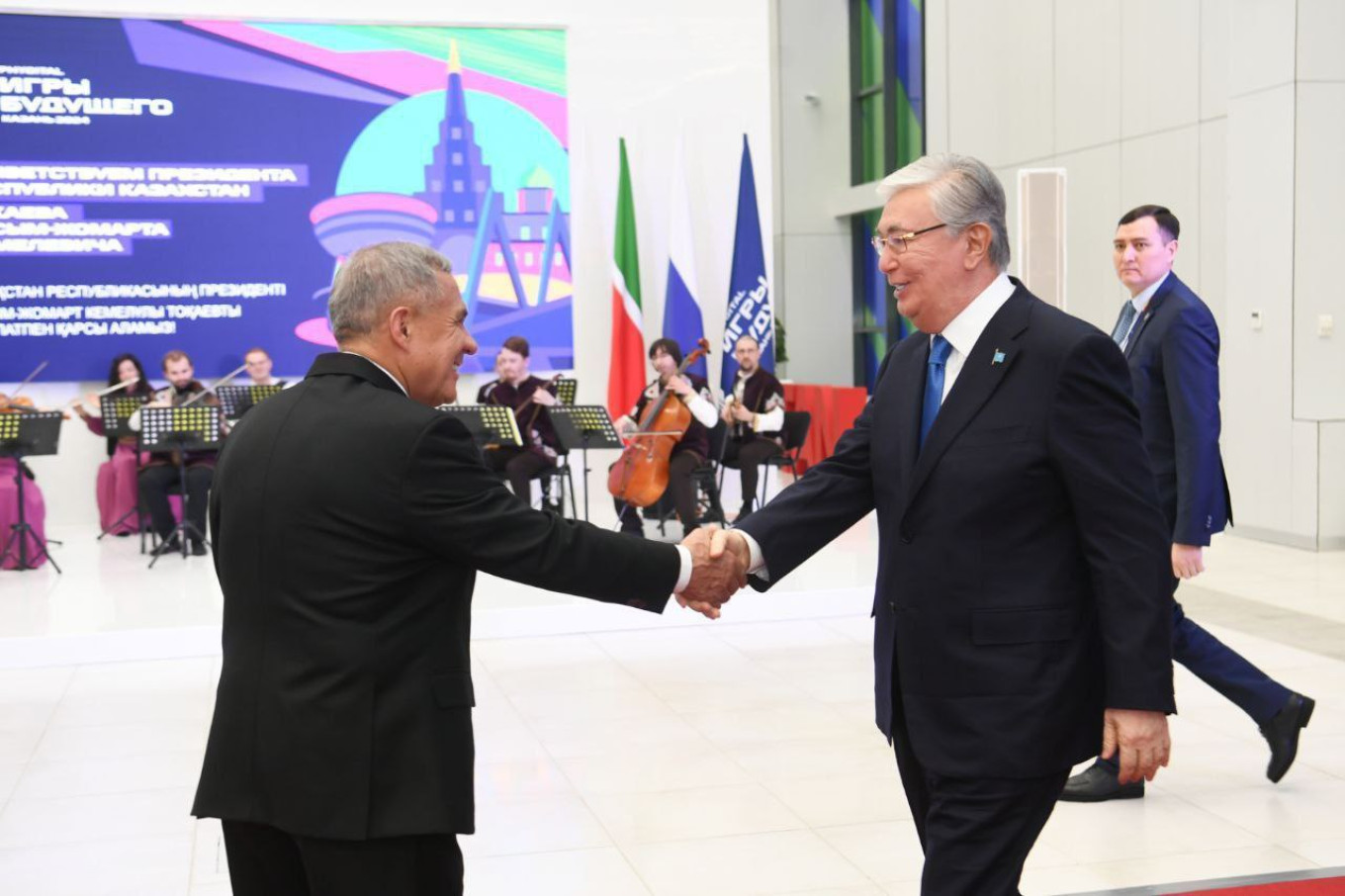
Kazan’s role in steering Russia’s diplomatic work in the Global South is not limited to bilateral contacts. Tatarstan’s capital has become a go-to host of international forums spearheaded by Russia, from last year’s inaugural Games of the Future to the Kazan Economic Forum that concluded last week and drew participants from over 100 countries, according to organizers. And in 2018, Kazan was one of the host cities for the FIFA World Cup, which many saw as a soft-power coup for Putin.
Though the Kremlin’s strategy of exploiting the Muslim republic to achieve its geopolitical aims might seem utterly brilliant, we should not give Putin or anyone else in his administration credit for thinking it up. After all, it was the Russian Empire that first (successfully) employed Tatars to aid its quest to colonize Central Asia.
Like centuries ago, ordinary Tatars are unlikely to reap benefits from these dealings with the Kremlin, but, on the contrary, could become its victims. Tatarstan has long maintained one of the leading positions by the number of Ukraine war casualties among Russia’s regions, but now Russia’s Defense Ministry is also intensifying a campaign to use the republic as the main recruitment ground for the Africa Corps, a rebranded African arm of the Wagner mercenary group.
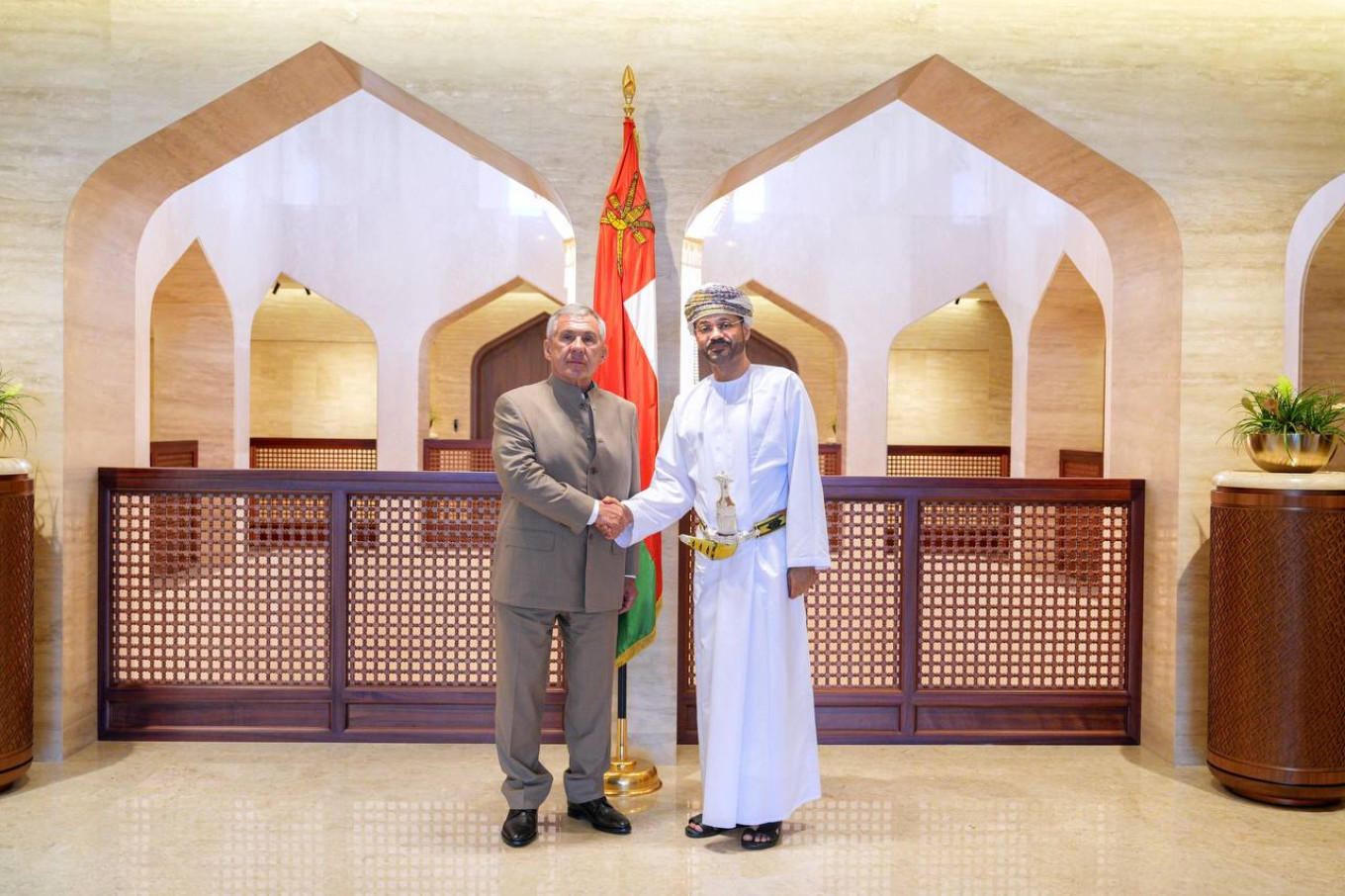
It is Minnikhanov and the elites in his inner circle who stand to benefit most from this relationship, gaining global prestige and monetary rewards from business contracts flowing into the republic.
As Russia eyes Tatarstan as its next venue for wooing Trump, perhaps we will one day see the next Trump Tower rising over Kazan?
A Message from The Moscow Times:
Dear readers,
We are facing unprecedented challenges. Russia's Prosecutor General's Office has designated The Moscow Times as an "undesirable" organization, criminalizing our work and putting our staff at risk of prosecution. This follows our earlier unjust labeling as a "foreign agent."
These actions are direct attempts to silence independent journalism in Russia. The authorities claim our work "discredits the decisions of the Russian leadership." We see things differently: we strive to provide accurate, unbiased reporting on Russia.
We, the journalists of The Moscow Times, refuse to be silenced. But to continue our work, we need your help.
Your support, no matter how small, makes a world of difference. If you can, please support us monthly starting from just $2. It's quick to set up, and every contribution makes a significant impact.
By supporting The Moscow Times, you're defending open, independent journalism in the face of repression. Thank you for standing with us.
Remind me later.



